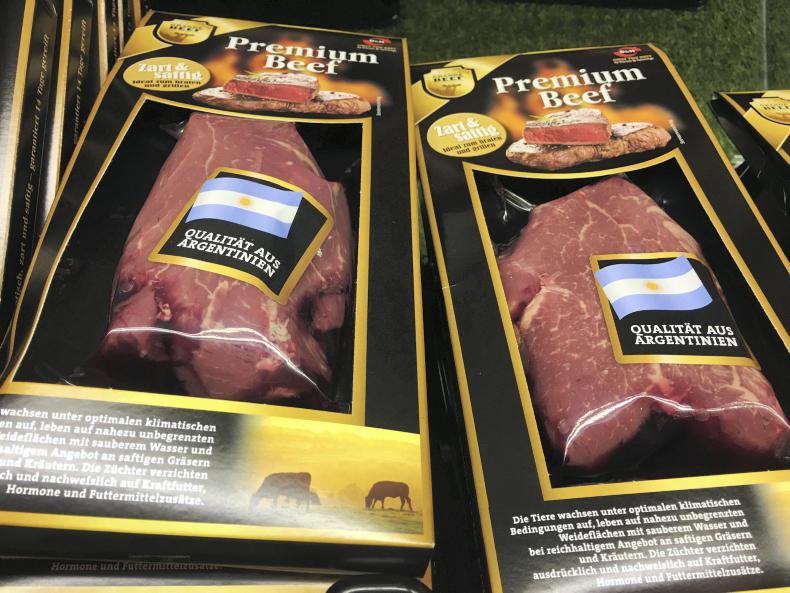London School of Economics (LSE) consulting has released its “Sustainability Impact Assessment (SIA) in Support of the Association Agreement Negotiations between the European Union and Mercosur” draft final report.
This is over a year after the deal was finalised last June and the EU Ombudsman, Emily O’Reilly, has opened an inquiry into why the European Commission did not have an updated SIA before the agreement was concluded.
This follows a complaint by five civil society organisations that the Commission did not follow its own guidelines by failing to have a SIA published ahead of the agreement.
The Ombudsman has written to the EU Commission president Ursula von der Leyen, asking for a response within three months.
What the report says
Irrespective of whether or not proper procedure was followed, the report is now available and it confirms what beef farmers feared. The report considers the impact of the deal from either a conservative or ambitious perspective.
In the ambitious deal, there is virtually completely free trade, including a quota restriction of 99,000t with 7.5% tariff for beef. LSE estimates that this would increase EU imports of South American beef by 64% or 128,000t carcase weight equivalent (cwe).
The report also notes that the EU is the Mercosur countries’ main export market for high-quality chilled beef (steak cuts), accounting for 44% of their total export volume. The average value of EU imports from Mercosur is put at €5.64/kg cwe, compared with an average of €3.80/kg cwe for EU products.
This is a particular concern to Irish and EU farmers, because while steak meat is a small portion of the beef carcase, it is the most valuable. Any increase of steak meat imports to the EU will disproportionately devalue EU carcases.
Winners
The EU dairy sector has negligible trade with South American countries at present, accounting for just €24.3m of EU dairy exports out of the €9bn of EU dairy exports in 2016. Ireland exported 2,903t to Mercosur countries out of 1.6m tonnes total, or 0.2% of all Irish exports. Doubling this market would mean it growing to a still negligible 0.4% of Irish exports. Machinery exporters will also benefit from the deal, with EU exports forecast to increase by 78%.
Ireland’s biggest winner
The biggest winner from an Irish perspective is the pharmaceutical sector, where the Mercosur market has grown from being 16% of EU pharmaceutical exports in 2000 to 24% in 2019, with a value of €10.8bn. This is forecast to increase by a massive 60% in the ambitious deal scenario, where tariffs that currently exceed 10% for nine of the top 20 EU products exported to Mercosur countries are removed.
The European Chemical Industry Council (CEFIC) put the value of Ireland’s total chemical and pharmaceutical exports at €73bn in 2018 – 60% of the country’s exports and €2bn contributed in corporation tax.
The sector has 30,000 direct employees, with a similar number employed in providing support services to the sector, according to CEFIC.
Beef will pay for Mercosur deal
The Irish beef sector employs more people in farming and processing across the country, and all of the wealth generated from rearing the calf to exporting the finished product is retained in local economies.
However, the reality is that the Mercosur trade deal is demonstrated to benefit the EU economy in all other sectors, so beef farmers are faced with having to compete with a further 128,000t cwe of high-value beef imports from South America, where production costs are dramatically lower than Europe, if the deal is ratified.
There is no evidence that the requirement on replanting Brazilian rain forest is being adhered to and it will be interesting to see what consideration is given to this by the EU institutions and national governments in the ratification debates.
When challenged on this in his interview with the Irish Farmers Journal, Commissioner Wojciechowski made it clear that this was an issue for the trade commissioner, though the impact on farmers would be monitored.






 This is a subscriber-only article
This is a subscriber-only article










SHARING OPTIONS: